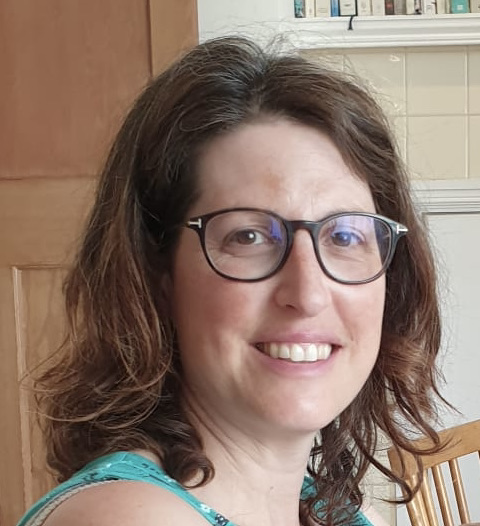
Judith is a Senior Lecturer in Cancer Prevention and Early Detection at the Centre for Cancer Screening, Prevention and Early Diagnosis, Wolfson Institute of Population Health, since 2022. Previously, she was a Senior Lecturer at King’s College London (2018-2022). Trained as a cancer epidemiologist and molecular biologist, she is a co-investigator on the £5m National Institute for Health and Care Research Policy Research grant (NIHR PRU) for Cancer Awareness and the CRUK/Asthma UK-funded PRISM project. She had also led breast cancer screening trials and the BEST3 trial.
When/where do you get your best research ideas?
I often get inspired when reading or hearing about interesting research studies. Ideas then develop while having conversations or discussions with colleagues. Research conferences are the best places for this, as there are so many opportunities to get inspired and talk to colleagues, and there is often a real energy around different discussions and exciting new topics. I also come up with ideas while walking. This often happens during my commute or when I take a walk to clear my mind when I’m feeling stuck.
Which failure(s) changed you the most?
The first grant application I led not long after I changed fields from molecular biology to epidemiology had a big impact on me. I was not awarded the grant and one of the reviewers was particularly horrible. However, I must admit that his comments made me realise that I needed to learn more statistics and epidemiology. As a result I completed several modules on epidemiology and statistics at the London School of Hygiene and Medicine, I was very committed to prove this reviewer wrong. This really helped with the change of research area, so I am really glad I made that decision after those reviewer’s comments!
What is the best piece of advice (work or life) you’ve been given?
Whenever I find it especially challenging to balance motherhood with work, I remind myself of a piece of advice shared by fellow working moms: everything is temporary. You just have to keep going, and eventually, things will improve—or at least, they’ll change. Holding onto this perspective in tough moments makes a real difference for me.
I’m inspired most by…
My closest and longest academic scientist friends, who I first met as a student and who have since achieved amazing things, all while combining their careers with having a family. I have been especially inspired by my friend Prof Cath Green was awarded an OBE for her work on the Covid vaccine. I have always been hugely inspired by her brilliant mind and how easy she makes it look. We did our post-docs together and spent a lot of time discussing our research and science in general. I continue to learn a huge amount from her.
In general, I’m constantly inspired by all the academic mums among my friends and colleagues. I know how challenging it can be to balance childcare, manage school schedules, and still accomplish one’s own work. They truly are superstars in my eyes.
Which books have greatly influenced your life?
There are two non-fiction books have greatly influenced my life. The first one was Steve Jones’s ‘Language of the Genes’, which was released when I was studying for my undergraduate degree at UCL. He made genetics and evolution fun and cool, which further confirmed that I wanted to be an academic researcher. The second book is ‘Daring Greatly’ by Brene Brown, a Professor in Management and Social work. The book is about shame, vulnerability and leadership. I learnt from her how important it is to create a work environment where people feel they can be vulnerable with their ideas and will never be shamed for something that is different, unconventional and wrong. Everyone can make mistakes and people are much happier if they can express their ideas. This is where great research lies.
What is your favourite paper that you’ve published in the last 5 years (the one you’re most proud of)?
I am most proud of the work I have done as part of the BEST3 trial. This was a large randomised controlled trial of the Cytosponge-trefoil factor 3 versus usual care to identify Barrett’s oesophagus, a condition of the oesophagus (also called food pipe) that can lead to cancer. The Cytosponge is a small sponge with a string in a pill, that can be used to identify patients with Barrett’s oesophagus. The BEST3 trial showed that the Cytosponge can find 10 times as many people with Barrett’s oesophagus than would normally be found. I led the protocol development before we started setting up the study and was involved in all stages of the trial. It was a major collaborative effort, and it was incredibly rewarding to see it all come together successfully. We published several papers on our findings, and I was one of the lead authors on the paper that examined patient reported experiences. We found that the Cytosponge was well accepted and caused little anxiety. All the findings from BEST3 were very encouraging and the Cytosponge is now trialled further in BEST4, a trial that could pave the way for a test to be established as a routine screening programme.
The views expressed are those of the author. Posting of the blog does not signify that the Cancer Prevention Group endorses those views or opinions.
